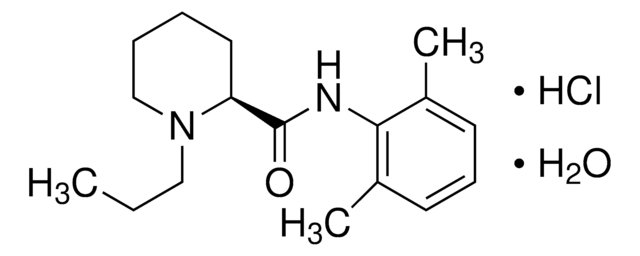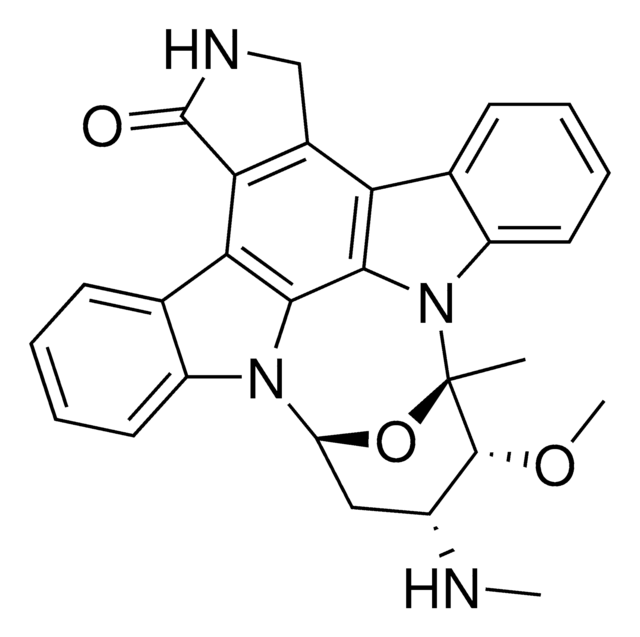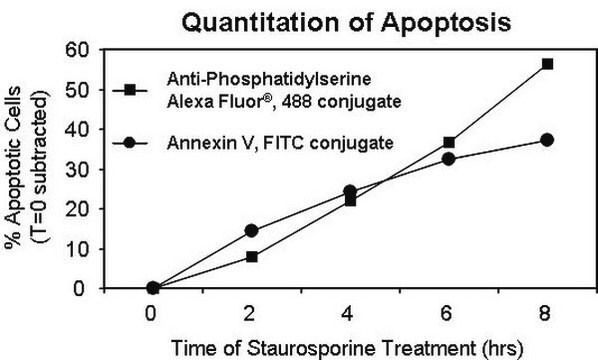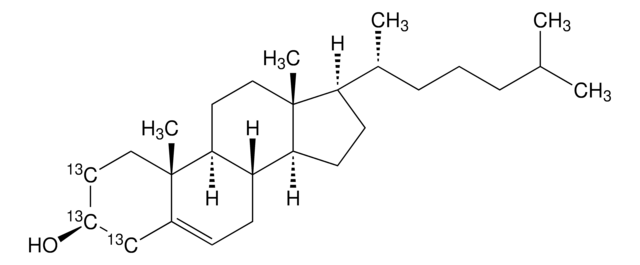S6942
Staurosporine
from Streptomyces sp., >98% (HPLC), solution, protein kinase inhibitor
Synonym(s):
Antibiotic AM-2282
About This Item
Recommended Products
product name
Staurosporine solution from Streptomyces sp., Ready Made Solution, 1 mM in DMSO (100 μg/214 μL), 0.2 μm filtered
Quality Level
sterility
0.2 μm filtered
Assay
>98% (HPLC)
concentration
1 mM in DMSO (100 μg/214 μL)
technique(s)
cell culture | mammalian: suitable
antibiotic activity spectrum
fungi
Mode of action
enzyme | inhibits
shipped in
wet ice
storage temp.
−20°C
Looking for similar products? Visit Product Comparison Guide
General description
Application
Biochem/physiol Actions
Storage Class Code
10 - Combustible liquids
WGK
WGK 1
Flash Point(F)
188.6 °F - closed cup
Flash Point(C)
87 °C - closed cup
Personal Protective Equipment
Certificates of Analysis (COA)
Search for Certificates of Analysis (COA) by entering the products Lot/Batch Number. Lot and Batch Numbers can be found on a product’s label following the words ‘Lot’ or ‘Batch’.
Already Own This Product?
Find documentation for the products that you have recently purchased in the Document Library.
Customers Also Viewed
Articles
Protein-based drug transporters are found in most tissues including liver, kidney, intestine, and brain. These transporters are particularly important in cancer treatment and multi-drug resistance research. Understanding the specific mechanisms of tumor cell transporters is becoming an essential aspect of chemotherapeutic drug design.
Related Content
DISCOVER Bioactive Small Molecules for Nitric Oxide & Cell Stress Research
Our team of scientists has experience in all areas of research including Life Science, Material Science, Chemical Synthesis, Chromatography, Analytical and many others.
Contact Technical Service













